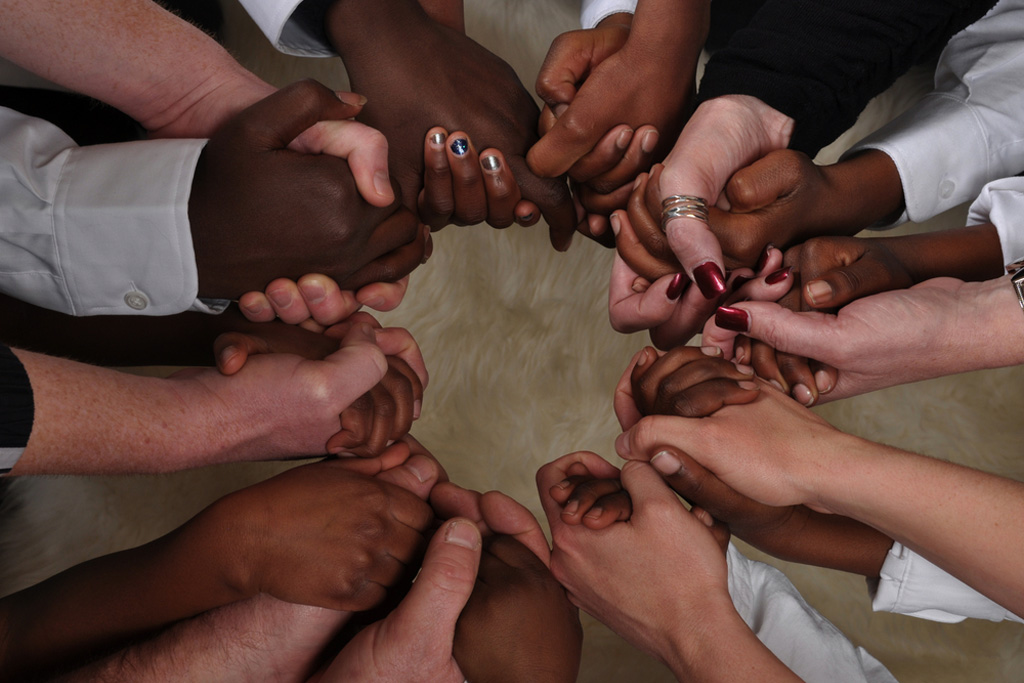In any significant relationship, differences are inevitable, for no two people have exactly the same interests, ideas, expectations or timetables. The question is not whether you have conflict in your life, but how you handle it that makes a difference.
Circumstances that feed conflict are:
- Ineffective communication can cause conflict due to confusion about expectations and limits in a relationship. For example, when one person makes a unilateral decision without consulting others who are also involved, it’s not surprising that conflict results.
- Seeking justification for your actions or point of view can make it difficult to let go of your position in a conflict, even when you know you’re wrong. You may continue a disagreement just because you think you’ll appear weak if you back down.
- Misperceptions arise when we lack empathy for others. It’s all too easy to remember the facts that justify your own position while ignoring or even denying facts that support the other point of view. Even as you are righteously indignant about your spouse’s lying about what time s/he left the office, you may conveniently forget your own “white lie” about the cost of your new computer.
- Sex differences. Women typically handle conflict by trying to resolve it in cooperation with another person, processing their feelings and insights about the situation as they arise. Men, on the other hand, tend to withdraw into themselves, process their feelings internally and present a solution instead of discussing different options.
- Fear of failure. Defensiveness due to fear of making a wrong decision can cause conflict. Every decision is risky because it has both positive and negative consequences; there is no perfect solution. The best solution is simply the one with the fewest drawbacks based on the information currently available.
- Competitive thinking. Winning and losing are goals for games, not for conflict resolution. Resolving conflict is not about who is right; it’s about acknowledging differences and finding compromises, so the goals are learning, growing, cooperating and problem solving.
All conflict is an opportunity for growth through learning more about us. When our beliefs are challenged and we are forced to defend them, we grow intellectually. When we learn to resolve disputes, we grow socially. And as relationships become so intimate that innermost thoughts and feelings are exposed, we grow emotionally.
WHAT’S THE REAL CONFLICT?
Many conflicts that arise in adult life are actually replays of unresolved conflicts from childhood. We seem to sense when some chapter of our developmental history has been left unfinished by an unsatisfactory parental relationship. So we may be unconsciously drawn to mates, friends or bosses who relate to us in much the same way as one of our parents. The quest to be loved, our attempts to please, or the struggle for power and control is re-enacted with new players in an attempt to “get it right” this time and resolve the old conflict.
The inevitable conflicts arise because we have chosen the same type of frustrating person that we grew up with and because we interpret their actions through the memory of our unhappy childhood experience. In such cases, the man whose mother was controlling and possessive may find himself in a constant power struggle with his wife; the woman who could never gain father’s approval finds herself working for a critical, impossible-to-please boss.
These conflicts are usually very intense because all the old unresolved feelings come spilling out along with the current ones. A professional counselor can help you separate yesterday’s feelings from today’s. Once you deal with the old conflicts, you’ll find today’s much easier to resolve.
ON THE JOB
Most of us have been or will be put in situations at work with someone who rubs us the wrong way because of personality clashes, different values, tastes, objectives or views. It’s unrealistic to think everyone we meet will like us or we’ll like them. You can learn to work together despite the differences if you
- Identify the situation and examine your responses and feelings from varying points of view to see if you’re making it better or worse.
- Stand back from the conflict and ask yourself why this person is an irritant. Are you fighting a problem of your own and do you understand this person?
- Ask yourself if there is a better way to handle the situation than you are now. Have you really tried to talk through your differences with this person? Explore options.
- Take action and recognize others’ efforts to cooperate.
A moderate level of interpersonal conflict at work can have a positive impact by… - Increasing your motivation and energy level.
- Stimulating innovation because of the greater diversity of viewpoints and a heightened sense of necessity.
- Helping you to develop a better understanding of your position by forcing you to articulate your views and organize your supporting arguments.
- Making you more aware of your own values and priorities.
DEALING WITH CONFLICT
Like so many other behaviors, our response to conflict is learned in childhood. Children learn from their parents’ example how to react to conflict and pattern their own behavior on this experience. Some common ways of dealing with conflict are:
Denial – Some people are so threatened by conflict that they deny it exists and exclude it from their conscious awareness. They pretend that everything is fine even when it’s obvious that it’s not. Habitual denial can often lead to psychosomatic illness and other forms of psychological distress.
Avoidance – Other people acknowledge the existence of a conflict, but do everything they can to avoid facing it. They withdraw or gloss over the situation as though it doesn’t exist. Premature forgiveness may patch up a relationship but if the dynamics of the conflict are not worked through, feelings may build to the point of being uncontrollable. Repeated avoidance becomes a continuous retreat from the real world and may lead to denial and resentment.
Submission – When confronted by someone else’s needs that conflict with his or her own, submissive people give in without a struggle. They go through life pleasing other people at the expense of their own needs, and often end up hating those for whom they sacrifice. The more submissive the behavior, the more probable that health problems (such as migraine headaches, high blood pressure, and ulcers) will occur. Psychological problems include low self-esteem, depression, and high anxiety.
Domination – The person dominating the decision-making comes up with solutions designed to meet their needs. While they may get their way, the other person may harbor resentment because their feelings are not being considered. As a result, the relationship suffers.
KIDS AND CONFLICT
Parents who always argue behind closed doors prevent their children from seeing how they solve problems. Seeing one parent walk away from the other one to avoid an argument may create more anxiety for children because they can sense the repressed
Anger.
Children benefit from experiencing some degree of constructive conflict between their parents as long as there is some type of resolution or compromise, and the disagreement does not involve yelling and belittling one another. Parents who argue constructively can teach children that conflict is normal. Constructive conflict can actually strengthen a family by keeping the lines of communication open.
Parent/child conflicts are usually about control. Parents who are confident that they are in charge usually do not get drawn into power struggles. But those who are less sure may find themselves fighting to exert control over their children to prove to themselves that they can do it rather than teaching the child self-discipline and consideration for others.
Adolescents’ relationships with their parents typically undergo a stressful period as they experience hormonal changes and struggle with finding their own individuality. While it’s unrealistic to think you can raise children without disputes, it is important to handle the conflict in a beneficial way…
EXAMPLE: You and your teenager frequently disagree, and sometimes emotions run high. Make it a rule that if either one of you raises their voice, the conversation will stop until it can be resumed in a calm manner.
Conflicts that don’t get resolved in childhood tend to be played out over and over again with bosses, co-workers, friends and spouses. Also, if children don’t learn from their parents how to handle conflict, they may never be able to practice or teach it as an adult to their own families.
RESOLUTIONS
Avoiding conflict will not make it go away; the issue could come back to haunt you. While conflict should be faced and resolved as soon as possible, there are proper times and occasions to do so. No one benefits from random expressions of hostile feelings.
When emotions run high, we act differently than when we are calm. Stress increases the flow of adrenaline and decreases the blood supply to the problem-solving part of the brain as the blood flows to the body’s extremities. Before you discuss the conflict, reign in your emotions, and treat others with respect.
- Write down what you are feeling so you can focus more on the issue instead of your emotions during the disagreement.
- Define the problem before suggesting a solution.
- Restate each person’s concerns to show that you understand the problem.
- Listen to what each person says.
- Be direct and honest. Say what you mean, and mean what you say.
- Don’t tell someone what they’re thinking.
- Never criticize others; criticize only specific aspects of their behavior.
- Don’t blame others. Avoid saying “You always…”or “You never…”
- Avoid name-calling.
Keep the disagreement focused on the current issue. Don’t bring up things that happened long ago.
Pretend that all discussions are being videotaped.
Try to compromise. Brainstorm together for solutions that satisfy everyone.
After the conflict, ask yourself what have you learned? How useful was this in revealing new information about you, the other party, and the confronted issue? How badly were you or others hurt? Did any of you change your opinions, and if so, what are your new positions? Are you and the other party now closer or farther apart?
CONFRONTING A MANIPULATOR
Some people live by their own rules with little concern for their impact on others. These toxic personalities use other people’s desire for harmony to manipulate them and gain control in relationships. They are adept at pushing others just enough to get them to do what they want, but not so far that they are willing to argue.
With such people, it is often useful to deliberately create conflict. Confronting them about seemingly small discrepancies, slights or manipulations will prevent future conflict that could potentially be more unpleasant. Once they understand that you are not afraid of conflict, they’ll alter their behavior and become less troublesome. By creating a little conflict, you’ll actually avoid a lot of bigger ones.
Ask yourself
HOW DO YOU HANDLE CONFLICT?
- Are there certain people or situations that seem to bring out the worst in you, causing you to respond in ways that escalate conflict? Observe how you respond when you are faced with conflict situations, and, if necessary, commit to changing your behavior.
- What triggers your anger? Is this conflict about a current situation or is it really a replay of a power struggle with Mom or Dad?
- Do you need to always be in control? Perhaps you should consider sitting back and listening until you understand the other side of the conflict. Discuss a variety of possible solutions instead of trying to “sell” your solution.
- Do you blame other people for conflicts and expect them to solve the problems? Don’t make excuses for yourself. Take responsibility for your actions.
- Do you use conflict to divert attention from a bigger or more serious problem? Stay focused on the real issue.
- Do you avoid conflict at all costs, even if it means giving up something important to you? A little conflict with others is much less damaging than constant internal conflict because you feel you let yourself down.




